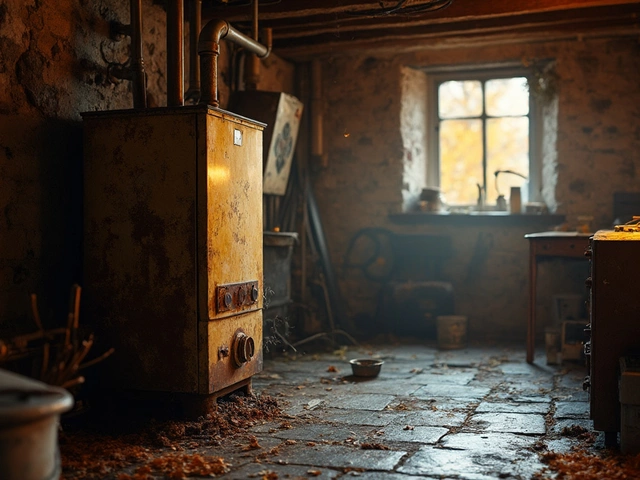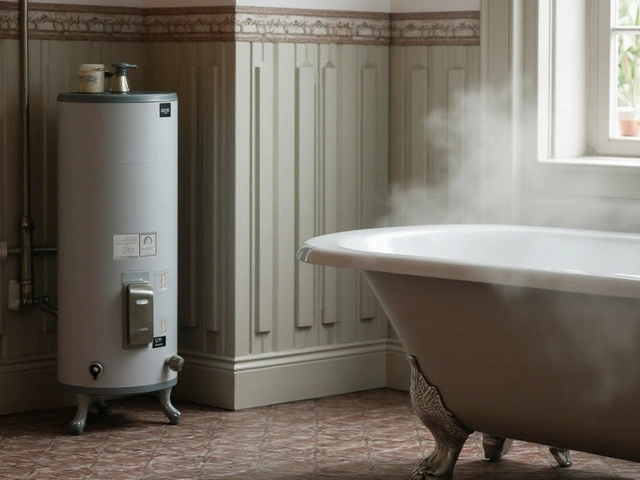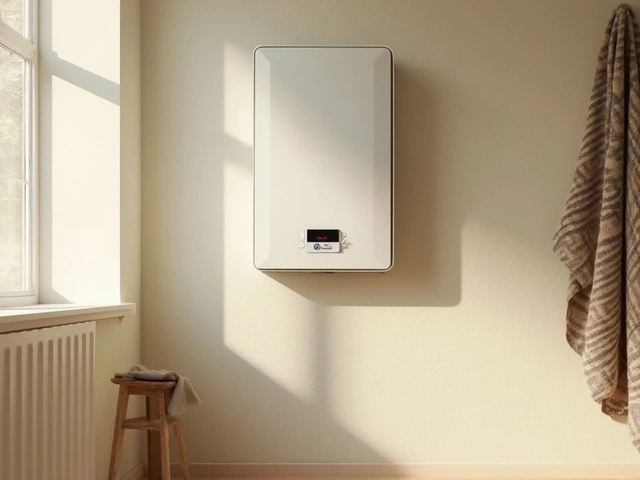Feeling the pinch of rising energy bills? You don’t need a major overhaul to start saving. Small changes to the way you use and look after your appliances can make a big difference. Below are simple, everyday actions that will help your washing machine, oven, heat pump and water heater run more efficiently.
First, keep your fridge and freezer tidy. Frost build‑up forces the compressor to work harder, so defrost when the ice layer reaches about a centimeter. Clean the coils at the back or underneath – a quick vacuum removes dust that traps heat.
When you cook, match pot size to burner size. A small pan on a big burner wastes heat. Use lids whenever possible; they keep steam inside and cut cooking time by up to 30 percent.
For electric ovens, check the element regularly. A faulty element can cause uneven heating and force the oven to stay on longer. If you notice hot spots or the oven takes longer to pre‑heat, it’s time to replace the element – a 2025‑average cost is around £80‑£120, which is cheaper than running the oven inefficiently.
Your heat pump is a big energy saver, but only if it’s well maintained. Clean the outdoor unit’s fan and remove any leaves or debris each season. Check the filter monthly – a clogged filter reduces airflow and forces the compressor to work extra hard.
When the outside temperature drops below the low‑temp limit for your heat pump (usually around -5°C for air‑source units), switch to a backup electric heater only for a short period. Running the heat pump continuously in extreme cold can raise electricity use sharply.
Water heaters often get ignored. Flushing the tank once a year removes sediment that insulates the heating element, keeping heating efficiency high. Set the thermostat to 60°C (140°F); higher temperatures provide little extra comfort but raise energy use.
If your boiler is older than 10‑12 years, have it serviced. A poorly tuned boiler can waste up to 15 percent of its fuel. A professional check will clean burners, adjust the gas‑air mix and test the pump, ensuring you get the most heat for each unit of fuel.
Lastly, think about timing. Use timers or smart plugs to run dishwashers, washing machines and dryers during off‑peak hours. Many energy suppliers offer cheaper rates at night – shifting a 2‑hour wash can save a noticeable amount on the monthly bill.
By combining regular maintenance with a few habit changes, you’ll see lower energy bills without sacrificing comfort. Start with one tip this week, watch the savings add up, and keep adding more as you go.

Ever wonder if switching your boiler on and off harms it? This article unpacks how boilers handle frequent power cycles, what really wears them out, and when switching off could save you cash or cause problems. Find out the best ways to run your boiler for both safety and savings. Practical tips and real facts—all in plain English. Avoid costly repairs by knowing how to treat your boiler right.

Deciding whether to repair or replace a refrigerator can be a puzzling task for most homeowners. Factors like the age of the fridge, the cost of repairs, and energy efficiency play crucial roles in this decision. Getting a new fridge might seem attractive with the latest features, but sometimes repairing your old one is the better choice. Before making a move, it’s essential to weigh the pros and cons to make an informed choice.

Replacing an old boiler might seem like a hassle, but when it's reaching the 15-year mark, the decision becomes crucial for efficiency and safety. This article explores whether it's time to upgrade, balancing costs, savings, and the impact on your home. From understanding energy efficiency to recognizing warning signs, we dive into everything you need to consider. With insights and practical tips, make an informed choice about your old boiler.

This article delves into the debate between Rheem and AO Smith water heaters, two titans in the world of home appliances. It provides a comprehensive comparison, exploring key aspects like energy efficiency, durability, and cost-effectiveness. It also highlights some interesting facts and practical tips to help you choose the right water heater for your needs. Whether you're looking to upgrade your system or repair your current unit, this guide aims to provide valuable insights.

Troubles with your water heater might mean it needs a reset. Knowing when and how to reset it can prevent cold showers and unnecessary stress. This guide covers signs your water heater needs resetting, why it's important, and how to do it safely. Plus, learn some handy maintenance tips to keep it running smoothly.

Wondering if your 20-year-old oven can be repaired? Discover repair tips, replacement part insights, costs, and when it makes sense to swap your old oven for a new one.